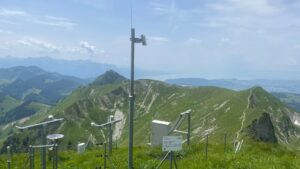FS 3.191: Management of post-disturbance mountain forest recovery
Details
Full Title
Forest recovery after disturbance: Challenges and opportunities for the management of mountain forests
Scheduled
—
Convener
Co-Conveners
Assigned to Synthesis Workshop
—
Categories
ES-Forests, Adaptation
Keywords
Experiments, Forest tree regeneration, Global change, Modelling, Observations
Description
Climate change, extreme climatic events, and increasing natural disturbances can stress and disrupt ecological processes in mountain forests. For instance, widespread bark beetle outbreaks in the Alps have highlighted the vulnerability of these forests, which in turn can threaten key ecosystem services, such as their protective functions against natural hazards. To maintain protective effects over time, effective management and the promotion of tree regeneration are essential–not only for fostering ecological resilience but also for ensuring forest stability and the sustained delivery of essential ecosystem services in mountain regions. While disturbances present challenges for forest managers, they may also offer opportunities to better understand ecosystem recovery processes. Disturbance legacies, such as deadwood, can support regeneration, promote biodiversity, and sustain ecosystem services during recovery. Proactively leveraging these legacies through targeted post-disturbance management strategies can strengthen forest resilience and stability under uncertain future conditions. This session will focus on how post-disturbance management can facilitate forest recovery, particularly by supporting ecosystem services and biodiversity under uncertain future conditions. We invite contributions that explore innovative management approaches, practical tools, and scientific insights to guide decision-makers in promoting resilient mountain forest ecosystems in the face of climate change and increasing natural disturbances.


